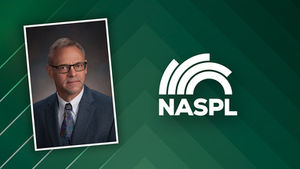top of page


Widget Didn’t Load
Check your internet and refresh this page.
If that doesn’t work, contact us.
Latest from Insights Online


Climbing High in West Virginia
Celebrating 40 years this month, the West Virginia Lottery has generated $13.7 billion for good causes in the Mountain State.


Marina Andrew
Senior Specialist, Municipal Relations, British Columbia Lottery Corporation


Taking Our Story on the Road
As I’ve mentioned, one of my top priorities as President of NASPL is simple, but essential: telling the lottery industry’s story.


Monsters, Movies, and Larger-Than-Life Experiences
How Lotteries Can Harness Horror and Iconic Entertainment Brands in 2026


AI at Play: Revolutionizing iLottery Engagement
Brightstar’s new Game Recommendation Engine provides players with an enhanced, personalized iLottery experience.


It’s Time for the GAME SHOW EXPERIENCE, Scientific Games’ Newest Omnichannel Linked Game
Winners’ Event in Los Angeles Offering up to $10 Million in Cash Prizes


A Challenging Year, With an Asterisk
In an industry based on chance, the luck of the draw was perhaps the biggest story of lotteries’ FY25 sales and revenue performance.


A Note of Thanks and Holiday Wishes
As we celebrate the holidays and prepare for the end of the year, we can all look back with pride on our work on behalf of the public we serve.


Catching Up With the Texas Lottery’s Retail Innovations
The lottery industry is moving forward on a number of fronts to make the retail sales process easier for both retailers and customers, and the Texas Lottery is leading the way.
Latest Press Releases
bottom of page